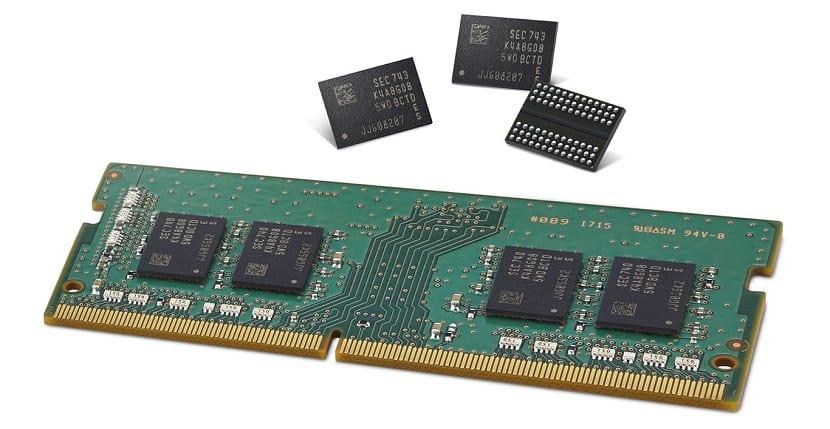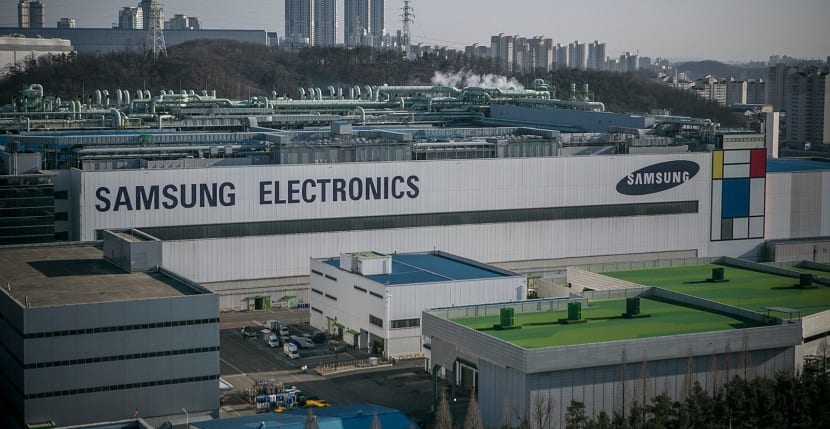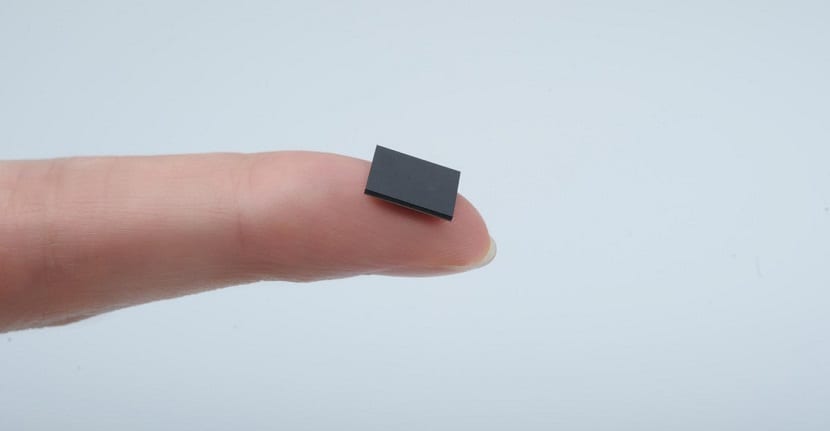
Samsung it's back and again to bring the colors out of many of the biggest chipmakers on the planet. On this occasion the order consisted of showing the public a new DDR4 RAM chip which, how could it be otherwise, stands out not only for being listed by the company as the smallest in the world, but it is also faster and consumes less energy than previous generations of the same chip.
Without a doubt Samsung has achieved put many of your competitors in trouble again Thanks to the impressive technological arsenal of all its manufacturing processes, something that, according to how the market tends to behave historically before this type of launch, will finally make, again, Samsung take a bigger piece of the cake for what that many manufacturers will drown even more, economically.

Samsung improves its manufacturing processes by 10 nanometers
What makes the launch of this new chip special? At the level of technical characteristics the truth is that nothing, although the truth is that, on the other hand, this novelty is much more important than you can imagine since Samsung has decided to bet on its manufacture for the development of this new RAM chip for 10 nanometer process, something that surely helps us understand the great improvement of offering this new technology.
According to the press release published by Samsung itself in this regard, apparently this new DDR4 RAM chip will hit the market in 2018 and being the first development of the company to release the manufacturing technology of 10 nanometer second generation. As a detail, tell you that we are only facing an adjustment of the manufacturing process used in 2017. Despite this, Samsung has managed to make it even smaller, enough to be the smallest in the world of its kind.

Samsung engineers have only needed 20 months to improve their manufacturing techniques by 10 nanometers
Going into a little more detail, tell you that according to the Korean company we are talking about a chip that, according to the tests carried out, is nothing less than a 15% more efficient as far as energy consumption is concerned. Although it requires much less electrical energy to operate, the chip is capable of delivering up to a 10% faster than the previous generation.
To achieve this interesting advance, Samsung has only needed 20 months from the date the previous generation was launched on the market, the same with which the company's 10-nanometer manufacturing processes were launched in turn. Thanks to these improvements, apparently, it has also been achieved that the manufacturing process itself has been perfected by 30%, which means that it is now easier for Samsung to work with this technology and achieve, in turn, that manufacturing costs decrease.

The step to 8 nanometers still resists
For now, the truth is that the possibility that Many of us expected Samsung to make the leap to 8 nanometer manufacturing, something that apparently will still take a long time to arrive, even more so if we take into account that today there are no companies that can compete with this technology and that it has been the Korean company itself that has confirmed that until 2018 the tests on manufacturing processes in 8 nanometers.
The fact that Samsung has no rival at the moment not only means that the company can take all this type of manufacturing much more calmly, something basic that will allow you to adapt the rest of your chips to this type of manufacturing technology where, the migration of different platforms such as DDR5, HBM3, LPDDR5 and GDDR6 has already been confirmed, something basic to ensure that their servers, supercomputers and other high-performance systems continue to be market leaders.